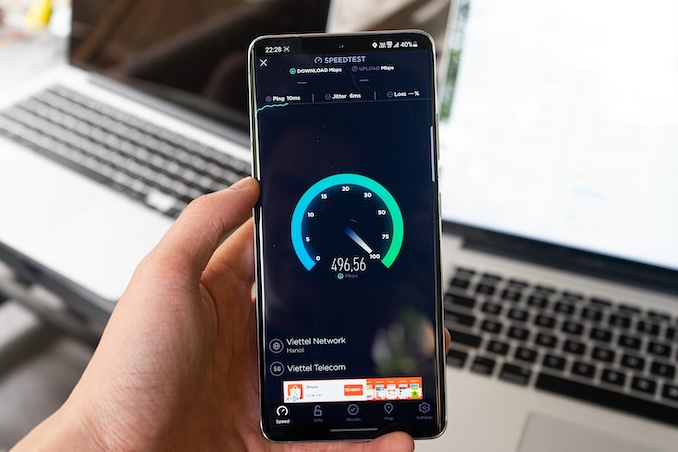From its truly huge data capacity to its potential to reach speeds 100 times faster than 4G, 5G is a game-changer in the world of wireless communication. Thanks to reduced latency, the new technology also removes lag in transmitting data, which can provide users with real-time experiences.

5G can connect 1,000 times more devices per meter than 4G and perform IoT tasks in much less time than 4G. Put together, these seemingly small advancements create a whole new world for mobile gaming and our lives in general. In this article, we look at how 5G is changing both mobile gaming and IoT to keep us connected as we go about our daily lives.
The New Era of Mobile Gaming with 5G
5G, the next generation of mobile technology, is already changing gaming for the better with its improved speeds, lower latency, and greater capacity. Whether you’re planning a staycation or vacation, or wherever you’re playing your favorite titles, these enhanced specs mean that 5G is capable of enabling more complex and immersive games. It can support multiplayer gaming with very little lag, and it can make real-time streaming of high-definition gameplay possible—all of which adds up to an experience that’s incredibly smooth and responsive, even in graphically demanding environments.
5G and the Evolution of Casino Games
Casino games are entering a new and exciting phase with the arrival of 5G technology providing tremendous upgrades in accessibility and user experience. 5G offers ultra-fast speeds (about ten times the data transfer rate of 4G) in addition to lower latency. This means that if you’re playing blackjack on a platform like PokerStars Casino, you’ll experience much faster load times and smoother gameplay. These improvements will also make live dealer games appear more realistic than ever before. For example, if you’re playing a live dealer blackjack game, you’ll be able to interact with a live person, almost as if you were sitting in a physical casino.
5G will allow these interactions to run smoothly, complete with high-quality graphics and animations without any buffering. Interactive and augmented reality (AR) casino games are also a possibility with 5G. For example, an enhanced game of blackjack could place you inside a virtually rendered casino, where the dealer, cards, and table are all improved with AR, turning it into a highly immersive game with an unprecedented level of interaction. You could make decisions and place bets with a wave of your hand, something previously unimaginable.
Transforming IoT with 5G
IoT has become an integral part of our digital world today, and 5G technology is essential for transforming IoT device connectivity. Its faster data transfer speeds and ability to support a massive number of IoT devices immediately make it easier for IoT applications to function at a higher level of efficiency. This can be seen in virtually every sector already: smart homes have become much more intelligent; IoT medical devices are improving healthcare; smart cities are becoming a reality; and industrial automation is functioning at a far more advanced level because of universal communication and operation between IoT devices that 5G makes possible. Integration of 5G into IoT at this level is a massive step up in harnessing the power of both tools as we move into a world where devices are indeed connected to everything and functioning in a manner that can make our lives far easier and more efficient.
The Future of Gaming and IoT with 5G
With 5G technology continuing to advance, big things are in store for the future of mobile gaming and IoT. With incredible speed and ultra-low latencies, 5G could bring about new genres in gaming with even more immersive and interactive experiences. Meanwhile, IoT will no longer be bound by limited applications, and it will usher in smarter, more efficient, and more hyper-connected places and things. 5G is more than just another step up in technology and entertainment; it’s changing the game and opening doors that were previously closed.
